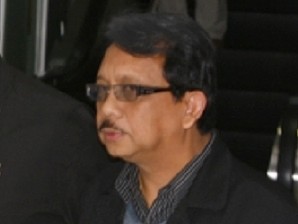The Aquino administration should adopt a stronger peace and order drive this year, especially if it aims to attract more tourists, an anticrime group said Sunday.
The Volunteers Against Crime and Corruption (VACC), in its yearend report, described the crime situation in 2011 as “disturbing,” saying that media reports the last six months showed that the crime rate had “reached such proportion that crime syndicates were no longer afraid of the laws of the land and had a field day sowing violence.”
“The killings all over the Philippines is a clear indication that the government does not have an effective peace and order agenda. The Department of Tourism’s latest travel slogan ‘It’s more fun in the Philippines’ should read ‘It’s more dangerous to be in the Philippines,’” said Dante Jimenez, VACC president and founding chairman.
The VACC said that from July to December 2011, more than 1,300 crime incidents were reported—an average of 217 a month or 55 per week.
Among the “alarming developments” identified by the group were the unchecked murders of journalists that earned for the Philippines the dubious tag as one of the world’s most dangerous places for the media; the “unabated” incidents of kidnap-for-ransom targeting even foreign nationals; and the rising number of assassinations by suspected guns-for-hire targeting political figures and other prominent personalities.
Motorcycle-riding
Murder cases totaling 778 were committed by assailants riding motorcycles in tandem, Jimenez said.
“It was alarming to note that almost all of murder cases were carried out in this manner because of the speed and easier escape provided by motorcycles,” he said.
He also expressed concern at the growing number of crime cases involving children and minors. In September, the group said 11 incidents of killings and rapes allegedly committed by children and teenagers were reported.
The VACC said 2011 also saw “widespread” murders and massacres of families, rapes and rape-slays of students even inside the supposed safety of school campuses; bombings of mining firms, business establishments and public places attributed to rebel groups; and an “upsurge” of syndicated crimes against property, such as car thefts, hijacking and robbery/holdups.
“A climate of fear and uncertainty gripped the public in 2011. The people were exposed to the very serious threat of criminal violence of such degree never before experienced [as] criminals conducted their illegal activities with sheer impunity,” Jimenez lamented.
Aside from advocating the restoration of the death penalty, the group called on the Aquino administration to extend its reform efforts against the “layers of corruption” in the various pillars of the criminal justice system.
Weak government
“The government is perceived by criminals as weak, thereby emboldening them,” Jimenez said, citing the rising cases of Chinese criminal syndicates who have chosen the Philippines as the “best place” to manufacture illegal drugs and engage in the trafficking of women and children.
“Inefficient” court procedures and delays have also led to dismissals of cases when exploited by defendants in the guise of “technicalities,” he said.
“We have cases [monitored] at the VACC whose trial reached up to 20 years. Frustrated, the victim is easily tempted to resort to shortcuts to end his ordeal. Corruption and incompetence of investigators or prosecutors who lack skills are the two main reasons crime cases could not proceed beyond the crime scene and only a few cases reach the court.”


